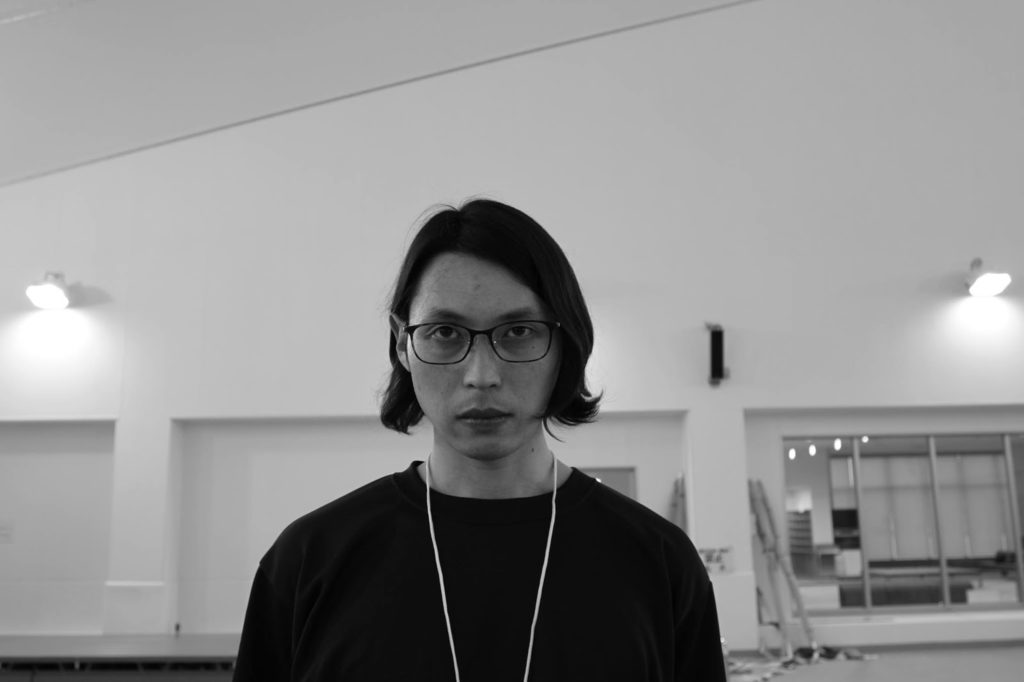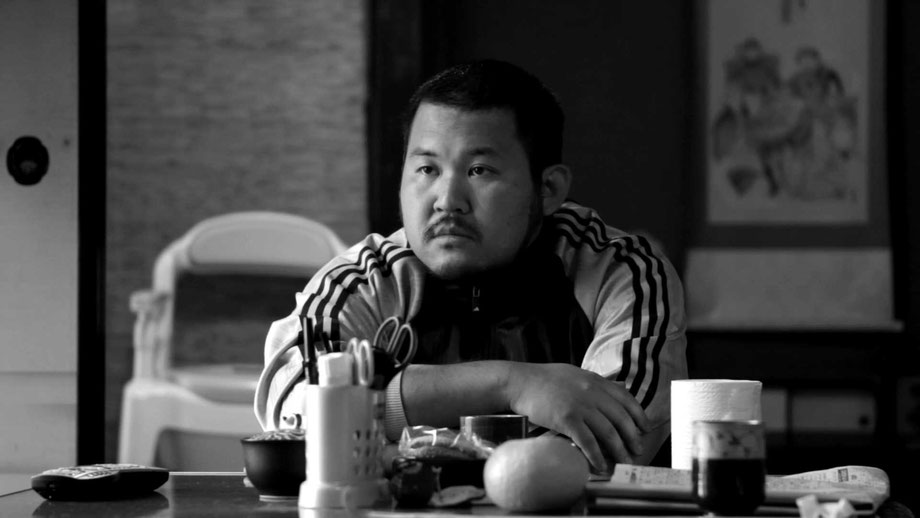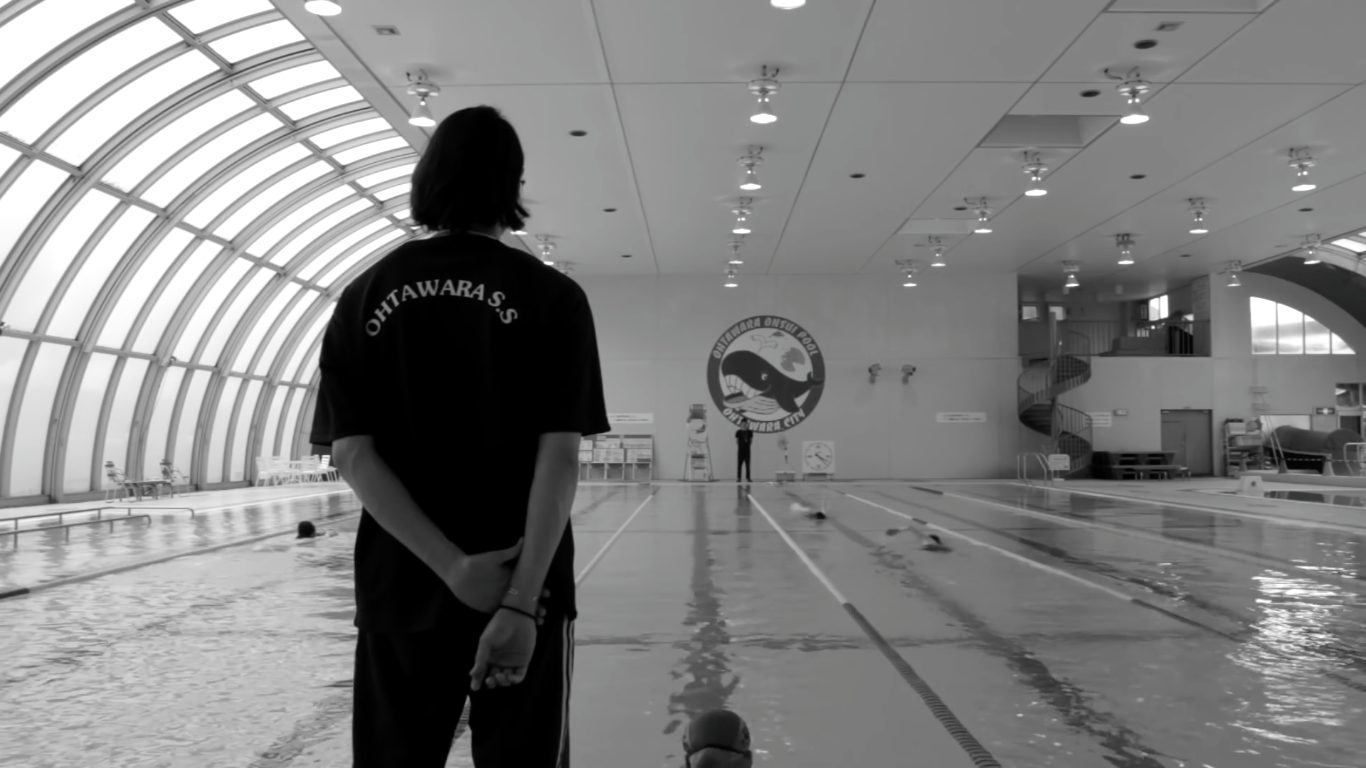
Poolside Man follows the everyday life of Mizuhara Yusuke, a young man who works at a pool house. The film was first released in 2016 and is the third film by Japanese director Watanabe Hirobumi.
The protagonist of the film has no family, friends, or a girlfriend, and spends his days in solitude. His work at the pool house, as well as his leisure time, follows an almost mind-numbing routine– a monotony that Watanabe depicts through repetitive long takes and monochrome images.
Set against Mizuhara’s humdrum existence are the international news that he constantly listens to, which are all about acts of violence and war in foreign shores. It is through this stark contrast that we get to appreciate what the director is trying to convey in the film.
“Japan is an island country,” Watanabe explains, “People there are not really concerned with what is happening with the rest of the world. What it means to be Japanese in this kind of world is the question that I am asking in this film.”

Watanabe, who also acted in the film as a very talkative co-employee of the protagonist, depicts his critique of contemporary Japanese society in the film. We see the protagonist going about his day without socializing with anyone; he watches movies alone, eats inside his car rather than join his co-workers during their break time, and does not reply to any questions directly addressed to him. The news about the acts of terror on the radio and television does not move him– in fact, it almost seems like he treats it as just white noise, as sounds he plays just to pass the time.
The film demands a great deal of patience from its audience, but it raises an important question about apathy in the face of global violence. How can an individual, even a nation, continue to be a passive spectator to war and terror just because they are not directly affected by it?
“We have to make this kind of movies to question what is happening to the world,” Watanabe says.
“We need to talk about what needs to be done.”
Poolside Man was the winner of the “Japanese Cinema Splash Award” at the 2016 Tokyo International Film Festival. It was screened in the Philippines as part of the 20th Eigasai Film Festival and of Cinemalaya’s Visions of Asia.



